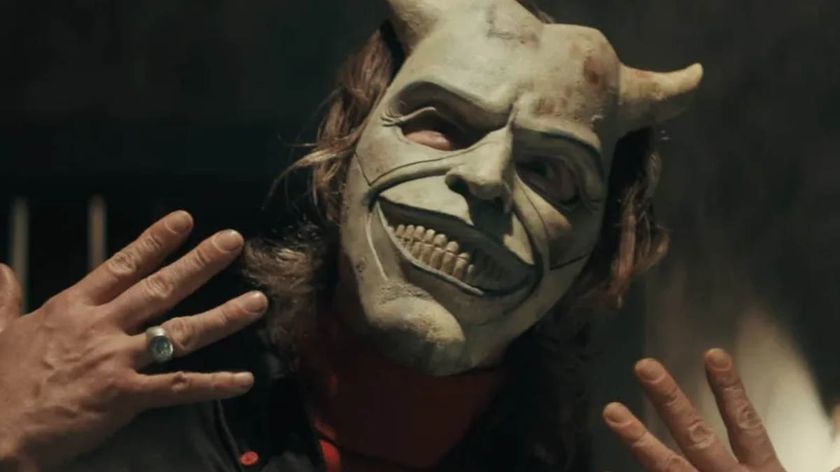Barry Norman On Barry Norman
Britain's cinematic treasure talks his critic career...
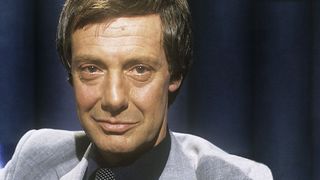
How would you say that film criticism has changed since you started?
Well, I think it’s taken not so seriously now as it used to be, which I find sad, because movies are an art form, they’re not just light entertainment.
And unfortunately, it’s also the movies’ fault because they’re tending more and more towards light easy entertainment rather than serious movies. I mean, particularly the studio films, the Hollywood films.
They’re all money driven, it’s the financiers who are deciding which films are made now. And since the target audience is about 15 to 18 years old, those are the people that they’re making the movies for.
This is sad, and I hope this trend will stop soon, I would like to see older people go back to the movies to see good serious films in greater numbers. Which might then encourage studios to start making more films, more good serious films.
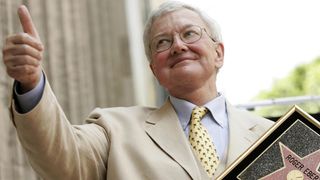
And which current film journalists do you respect?
Derek Malcolm I still like, I don’t always agree with Derek, but I always know where he’s coming from.
And Philip French who, alas, is retiring, they’re the two that I take a hell of a lot of notice of. These are guys I’ve known for years.
The other one is, alas now he’s dead, is an old mate of mine Roger Ebert. Not so much his television programme particulary, but his stuff in the Chicago Sun Times, which I thought was excellent.
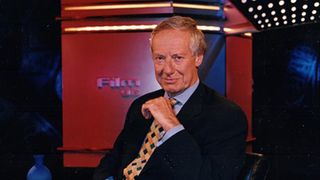
How do you feel about blog culture?
I’m suspicious of it, because I don’t know who these people are. If you get someone on a blog saying this is the best thriller I’ve ever seen, you have no idea how many thrillers he’s seen.
If he’s seen five, then it doesn’t matter much, if he’s seen 50 or 500 then you might think it’s worth checking this one out. I don’t know anything about these guys, so why should I take their word for anything?
The great thing about an established critic is you read them and then after a bit you decide, yeah I quite like this guy because his views are similar to mine so I’ll follow him. Or I don’t like this guy because he doesn’t like the films I like.
In that way, I suppose if you followed a blog for long enough you might come to decide certain ones you like and certain ones you don’t, but generally speaking I don’t think people do follow blogs that closely, they’ll just click up the film and see what somebody says about it.
And if you don’t know who the guy is, or indeed what his experience is, or how many films he’s seen, you don’t know whether to take his word for it or not.
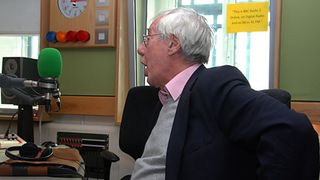
What was the most significant/memorable interview youve conducted?
Well, I suppose there are two most memorable.
One was before I was on television, when I was working for the Daily Mail, I interviewed John Wayne and he got out of his chair to hit me.
But fortunately he was stopped from doing that.
And the second one was when I did an interview with Robert De Niro around the time GoodFellas opened and again we nearly came to blows and so yeah, those are memorable.
You do tend to remember situations when you feel you might be in physical danger.
What did you say, Barry?
Well, Wayne was a political argument about the Vietnam War.
I’m left of centre politically and he was so far off to the right that I think the last politician he really admired was Ivan the Terrible.
And so we fell out over the Vietnam War, big discussion over that. Mind you, he had drunk 15 miniatures of bourbon before lunchtime so that might have accounted for his bad temper.
And De Niro hates doing interviews, he does them only because he’s contractually obliged to do so, and so therefore, as I’d feared, the interview was going nowhere. It was just monosyllabic. In fact there was a story that I’d seen repeated in several American magazines that he had begged for the role of Big a few years earlier, and the producer kicked him out of his office, saying no they wanted a real star.
I thought well this is rubbish because Tom Hanks was a star, but he wasn’t nearly as big as De Niro in those days.
So when I realised I was getting nothing else out of the interview I brought this up and said, you know, what was that about?
And he very very gradually told me his version of the story, which was that the producers approached him and he’d agreed to do it, but when they’d got to discussing where and when and how and maybe how much money he was gonna get, they fell out, he walked away, the producers then spread this story that they’d kicked him out, saying he wasn’t big enough.
And I had a thought that it was in his interests to have this publicised, because his version made much more sense than the other version, and somehow he just thought I was trying to stir up trouble.
So he got angry, and I was angry, and he stormed out at the end of the interview, and I stormed out after him and said what’s your bloody problem?
And he said, you know what my problem is. And we stood there snarling at each other nose to nose, and I thought no this is not good because he’s much fitter and younger than I am, and if it comes to blows I’m in trouble here.
That would never happen now, everything is so tightly controlled.
I know, which is one of the reasons I was glad to get out. When you get the publicity arm dictating everything - which is what you’ve got - it’s the tail wagging the dog.
And it’s very hard now to get a decent interview with anybody.
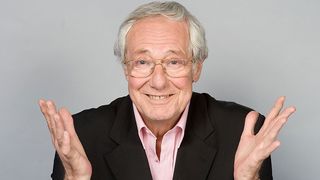
What advice would you give to a young person starting out?
See as many decent films as possible and think very deeply about them. If you want to be a decent critic, you’ve got to think deeply about them.
And then, the other thing is to be totally honest, whatever you think of the film and whatever anyone else may have said, and what the hype may say, tell people what you think, truly what you think.
You may be right, you may be wrong, people may disagree, they may agree with you entirely, but if you can do that, tell the truth about the film, then at least you can look at yourself in the shaving mirror in the morning without blanching.
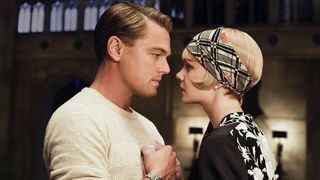
Do you still get as excited about new movies?
Oh, good ones, yes. And I get as irritated with bad ones as I ever did.
Is there anything coming up that you’re looking forward to?
Actually, I’m looking forward this afternoon to seeing The Great Gatsby , because it’s one of my favourite books, it is the great American novel and I’ve seen at least three of the previous versions of it, and didn’t think much of them. So I’m just very interested to see what Baz Luhrmann has done with it this time around. I think it’s an unfilmable book actually, because of the beauty of the writing.
And what is your favourite thing about going to the cinema?
The anticipation I think, the hope, often totally dashed, that what you’re going to see is something that will live with you for a while, something memorable. Doesn’t happen a lot, but it’s worth going to see nine crappy movies if the tenth one turns out to be something like that, something that you can think, ‘wow I saw that.’

How did you get involved with A Night At The Oscars?
I did something very similar, three years in a row, a few years back in Belfast with the Ulster orchestra, where they did three years’ concerts in each of three different years of film music.
On one of those, Carl Davis was the conductor, and I think Carl suggested that I’d be a good person to introduce this one at the Festival Hall. Which I was thrilled to do, because I’ve appeared in theatres all over the place, but never at the Festival Hall in London before, so I’m quite delighted and flattered.
What are you most excited about hearing live on the night?
Well, nothing particularly, because it’s all bloody good music and by and large from bloody good films.
A couple of films I’m not so crazy about that they’ve got the music from, like Black Swan and Titanic , but by and large yes, he’s chosen music from films I like and it is very very good.
You’ve got people like John Williams and John Barry and Vangelis, and god knows what, you can’t go far wrong, and Maurice Jarre, you can’t go far wrong with guys like that.
And what do you think the secret is to a memorable film score?
The really memorable ones are those that enhance the film, you know, you’ve got a very good film and it’s made even better by the music.
Now, this is probably true of most films, but there are some films where the music stands out. The two that come to mind are Vangellis’ music for Chariots Of Fire , and, of course, the zither music in The Third Man .
You can’t think of The Third Man without thinking of the music in that. And in much the same way with Chariots Of Fire , every time I think of the film I hear the music in my head.
What causes that I really don’t know, I think that happens by accident.
Barry Norman will present A Night At The Oscars on June 1. You can find more information at the official website.
Sam Ashurst is a London-based film maker, journalist, and podcast host. He's the director of Frankenstein's Creature, A Little More Flesh + A Little More Flesh 2, and co-hosts the Arrow Podcast. His words have appeared on HuffPost, MSN, The Independent, Yahoo, Cosmopolitan, and many more, as well as of course for us here at 12DOVE.
